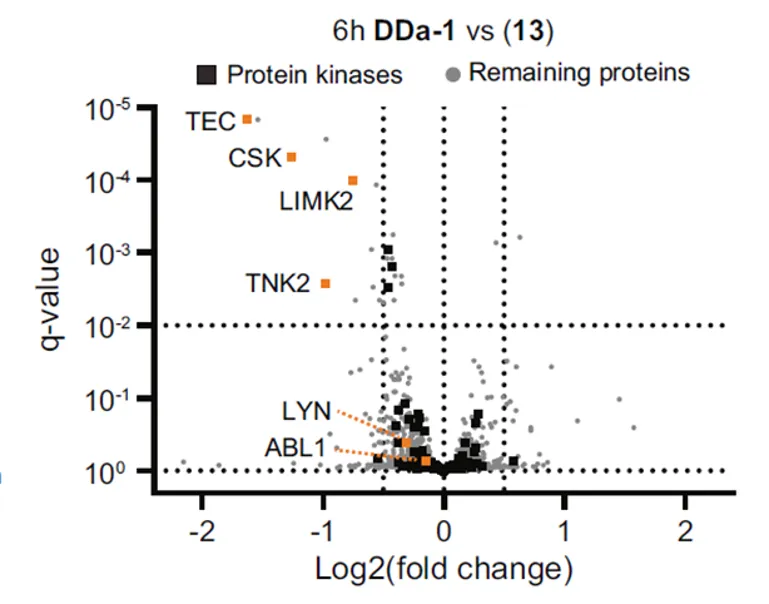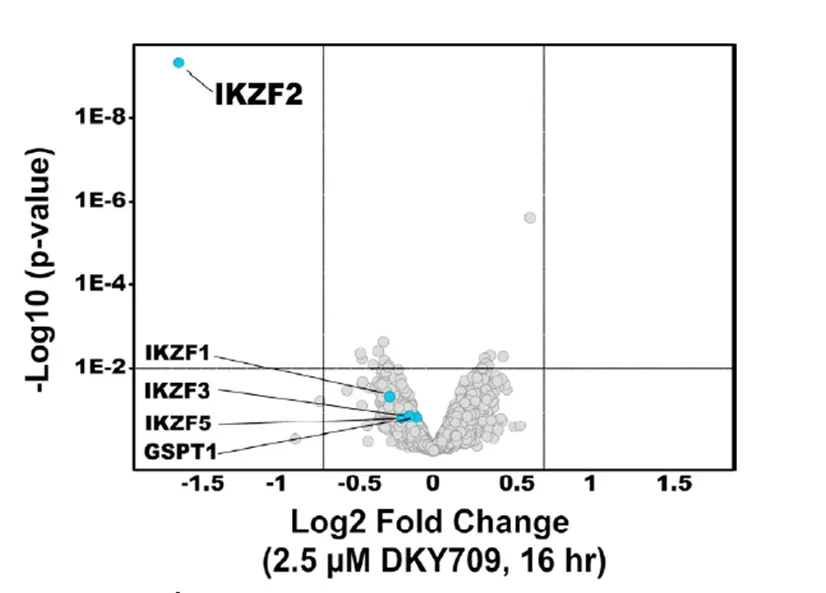
Learn! PreOmics® solutions are also suitable for your targeted protein degradation research
Explore these publications to discover how iST-based proteomics sample preparation supports targeted protein degradation (TPD) research.
iST-NHS kits as part of the discovery of non-covalent DCAF1-based PROTACs
that mediate degradation of tyrosine kinases

Schröder etal., NatureCommunications,2024
DCAF1-based PROTACs with activity against clinically validated targets overcoming intrinsic- and acquired-degrader resistance
DCAF1 PROTACs mediate the degradation of tyrosine kinases localized in the plasma membrane, cytosol as well as nucleoplasm. Proteomic profiling of HEK293T and TMD8 cells treated with DDa-1 and DCAF1 binders confirmed downregulation of CSK and LIMK2 kinases and resulted in discovery of two new non-receptor tyrosine kinases (TEC and TNK2). Cells treated with the different degraders were prepared for the TMT-based quantitative profiling using the iST-NHS kit from PreOmics®.
Read the publicationFully automated iST-NHS kits support discovery of NVP-DKY709, a selective IKZF2 (Helios) glue degrader in cancer

Bonazzi et al., Cell Chem. Biol, 2023
Discovery and characterization of a selective IKZF2 glue degrader for cancer immunotherapy
Cereblon (CRBN) selectivity is re-directed by glue degrader NVP-DKY709 in Treg cells. Deficiency of IKZF2 (Helios) transcription factor reduces tumor growth in mice. Quantitative proteomics profiling of Jurkat T cells treated for 16 h with NVP-DKY709 (or DMSO as control) revealed significant downregulation of IKZF2. Cell samples for this approach were prepared using the iST-NHS kit from PreOmics® on the PreON automation platform.
Read the publication


.webp)






